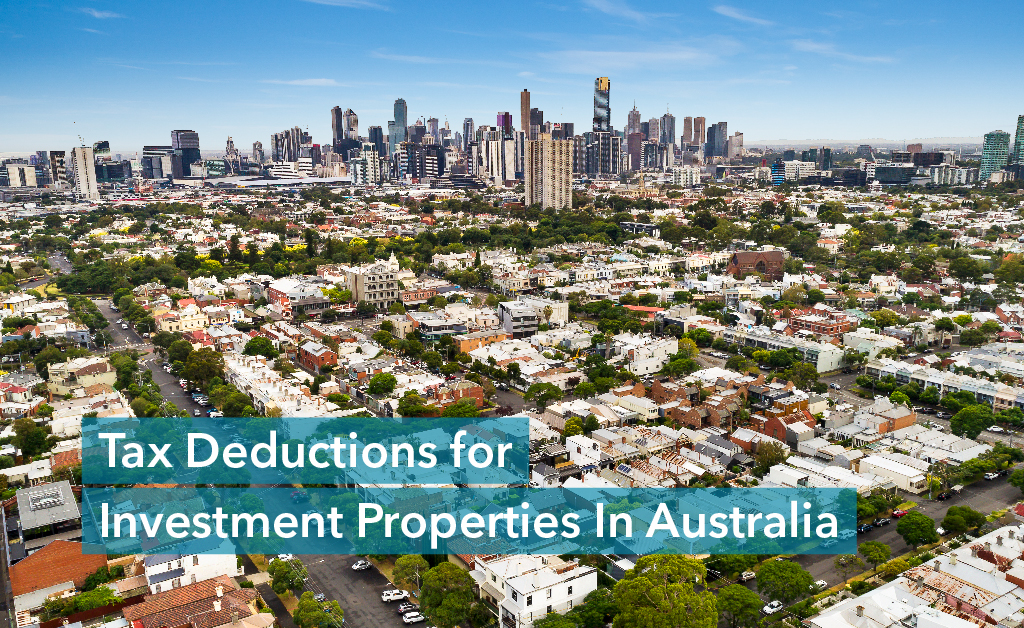As an Australian property investor, you want to make sure that you are getting the most out of your investment. One way to do that is to take advantage of tax deductions. By doing so, you can reduce your taxable income and increase your overall return on investment. If you are thinking of foraying into property investment in Australia, this article will guide you through some of the tax deductions available and how they will benefit both long-term and first-time investors.
What Are Tax Deductions?
Tax deductions are expenses that can be claimed against your taxable income. By claiming these deductions, you can reduce the amount of tax you owe.
What Are the Tax Benefits of Property Investment In Australia?
Investing in property can have some significant tax benefits in Australia. One of the most significant advantages is the ability to claim tax deductions for expenses related to the investment property. Additionally, investors may be eligible for negative gearing, which allows them to claim losses on their tax returns. This can reduce the amount of tax payable on other income streams, like salary or wages.
What Expenses Can Investors Claim In An Income Tax Return?
As an investor, one of the most exciting things about owning an investment property is the ability to claim certain expenses on your income tax return. It’s essential to keep all your receipts and records in order to accurately claim these deductions.
There are numerous expenses that an investor can claim in their income tax return, including property management fees, council rates, strata fees, insurance premiums, repairs and maintenance costs, and even travel expenses related to the property. It’s vital to remember that these expenses must be directly related to earning rental income from the property. Let’s take a look at these expenses briefly.
Interest on Loans
If you have taken out a loan to purchase your investment property, you can claim the interest paid on that loan as a tax deduction. This can include interest on a mortgage, line of credit, or any other loan that was used to purchase the property.
Depreciation
Depreciation is the process of deducting the cost of an asset over its useful life. As a property investor, you can claim depreciation on certain assets within your investment property. This can include things like appliances, furniture, and even the building itself. Depreciation can be claimed as a tax deduction each year and can add up to significant savings over time.
Repairs and Maintenance
Any repairs or maintenance that you undertake on your investment property can be claimed as a tax deduction. This can include things like fixing a leaking roof, replacing a hot water system, or even painting the interior of the property. It’s important to note that you can only claim deductions for repairs and maintenance that are necessary to keep the property in good condition. Any improvements or renovations cannot be claimed as a deduction.
Travel Expenses
If you need to travel to your investment property for inspections, maintenance, or other related activities, you can claim the cost of that travel as a tax deduction. This can include things like airfare, car rental, and accommodation.
Property Management Fees
If you engage the services of a property manager to manage your investment property, you can claim the cost of those services as a tax deduction. This can include things like advertising for tenants, conducting inspections, and collecting rent. It’s important to note that you can only claim deductions for property management fees that are directly related to the management of your investment property.
Do you pay capital gains tax on an investment property in Australia? How do you avoid capital gains tax on an investment property in Australia?
Capital gains tax is payable on the sale of an investment property in Australia. However, there are several ways to minimise or avoid this tax. Investors may be eligible for the main residence exemption, which allows them to treat the investment property as their primary residence for tax purposes. Alternatively, investors can hold onto the property for over 12 months, which can reduce the amount of capital gains tax payable.
Are renovations on an investment property tax-deductible in Australia?
Renovations on an investment property are generally not tax-deductible. However, some renovation costs may be considered repairs and maintenance and therefore eligible for tax deductions. It’s essential to consult with a tax professional to determine what costs are eligible for deductions.
Can you claim the interest of an investment property in Australia?
Interest expenses on an investment property loan are tax-deductible in Australia. This includes both the principal and interest payments on the loan. It’s important to note that if the loan is used for personal purposes, such as purchasing a new car, the interest expenses will not be tax-deductible.
Is stamp duty tax deductible on an investment property in Australia?
Stamp duty is not tax-deductible on an investment property in Australia. However, it’s important to factor this cost into the overall investment strategy when purchasing a property.
Is Rent Tax Deductible in Australia?
Rent is not tax-deductible in Australia. This is because rental income is considered taxable income, and as such, it is subject to income tax.
Take Advantage of Your Tax Deductions!
As an Australian property investor, it’s important to take advantage of all the tax deductions available to you. By doing so, you can reduce your taxable income and increase your overall return on investment. Some of the deductions available to property investors include interest on loans, depreciation, repairs and maintenance, travel expenses, and property management fees. Make sure to keep accurate records of all your expenses so that you can claim the maximum deduction possible.
As always, it’s essential to consult with a tax professional and a property investment advisor to ensure you are maximising your deductions while minimising your tax liability. To help you with the cause, book a free consultation with us!








